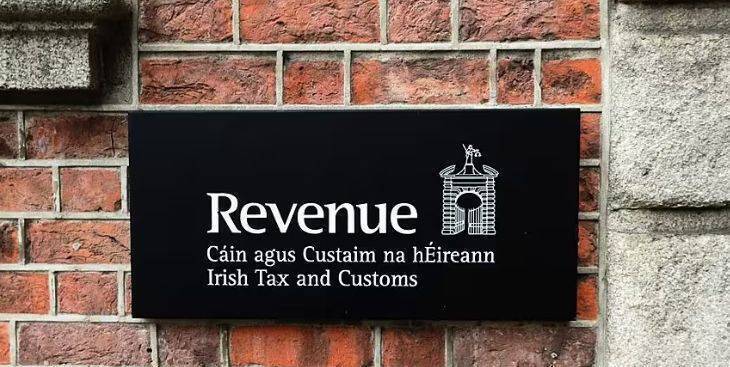One of the most critical tax questions in property transactions is whether the profit (or loss) should be treated as revenue (subject to income tax for an individual or corporation tax for a corporation), or as a capital gain (subject to capital gains tax). The distinction has significant implications for the rate of tax applied, the availability of reliefs, and the overall compliance obligations of the taxpayer.
This issue was central to the Tax Appeals Commission’s determination (ref: 196TACD2025), which was issued on 11 August 2025. In the case, the taxpayer (an individual) claimed income tax loss relief on the basis that they were engaged in a trade of land development. The Commissioner rejected the claim, finding that the taxpayer had not commenced trade and that the activity lacked the operational substance required to qualify for income tax treatment. The case illustrates how subjective intention must be supported by objective evidence, such as planning activity, financing arrangements, and development steps, to justify income tax treatment.
This article outlines the key considerations, supported by legislation, case law, and professional commentary, to help make informed decisions.
Summary of TAC determination
The individual purchased a 4.5-acre site in 2005 for €330,000, funded by an interest-only loan. The individual claimed that the land was acquired for the purpose of building and selling houses, estimating a potential profit of €2 million. However, no development occurred, and the land remained zoned for agricultural use. No planning permission was ever applied for, and the taxpayer did not register for VAT or claim losses until 2008.
The Commissioner found that:
- The taxpayer had no prior experience in land development.
- The loan was solely for the purchase of the land, with no formal agreement for development financing.
- No planning permission was sought or obtained.
- No physical development occurred.
- The taxpayer did not claim losses in the initial years and only did so retrospectively.
As such, the Commissioner concluded that the taxpayer had not commenced trade and that the claimed losses were not allowable, and the appeal was dismissed.
The fundamental distinction
At its core, the distinction between revenue and capital hinges on whether the transaction is part of a trade or an investment:
- Income (Revenue) treatment: Applies when the transaction is part of a trade, such as property development or land dealing. Profits are taxed under income tax or corporation tax rules.
- Capital treatment: Applies when the property is held as an investment and disposed of outside the course of a trade. Gains are taxed under CGT rules.
The first principles are:
- If the transaction is part of an ongoing trade of dealing in or developing land, it is of an income nature.
- If the land is acquired with the intention of selling it at a profit (rather than holding as an investment), it may be treated as an “adventure in the nature of trade” and taxed as income.
The badges of trade
To assess whether a transaction constitutes a trade, courts and tax authorities apply the “badges of trade”—a set of indicators developed by a UK Royal Commission and widely adopted in Ireland. These are:
- Motive: Was the primary intention to make a profit?
- Subject matter: Is the asset typically associated with trading (e.g., development land)?
- Repetition: Are there multiple similar transactions?
- Length of ownership: Short holding periods suggest trading.
- Supplementary work: Improvements to the asset may indicate trading.
- Circumstances of sale: Was the sale forced or opportunistic?
Other relevant factors include:
- Financing arrangements (e.g., short-term loans).
- Connection to an existing trade (e.g., a builder selling land).
- Formal business activity (e.g., VAT registration, business plans).
No single badge is conclusive; the overall picture must be considered.
Case law guidance
O’Farrell [2018] IEHC 171
Murphy J held that land development is an adventure in the nature of trade and that the trade begins when the developer purchases the land for development. However, the taxpayer had a development plan, secured financing, and pursued planning permission.
Buckley [2024] IEHC 414
Dignam J clarified that intention alone is insufficient. The taxpayer must demonstrate operational activity and financial risk. The court emphasised that all circumstances must be considered, including zoning, planning status, and actual steps taken.
These cases underscore the importance of evidence and context in determining tax treatment.
Mansell v Revenue and Customs Commissioners
The Commissioner also applied the principles from Mansell v Revenue and Customs Commissioners, which require:
- A specific profit-making concept.
- Operational activities involving third parties.
- Financial risk undertaken.
Practical examples
Based on the guidance, some high-level illustrative scenarios are:
| Scenario | Tax treatment | Comments |
| The developer buys land, builds houses, and sells | Income | Clear trading activity |
| Farmer sells land with development potential, but no work has been done | Capital | No trade commenced |
| Farmer performs basic development (roads, services) before sale | Depends | Maybe trading depending on the extent of work |
| Shareholder of a building company sells land annually | Income | Likely an adventure in the nature of trade |
Conclusion
Determining whether a property transaction is subject to income tax or CGT is a nuanced exercise. It requires a holistic assessment of the taxpayer’s intentions, actions, and the surrounding circumstances. The stakes are high—misclassification can lead to significant tax liabilities, penalties, or missed reliefs.
Taxpayers should:
- Document their intentions and plans.
- Maintain records of development activity.
- Seek professional advice early.
- Be aware of anti-avoidance rules.
By applying the badges of trade, analysing the transaction in context, and referencing judicial guidance and TAC determinations, taxpayers and advisors can navigate this complex area with greater confidence.
If you or anyone on your team would like to discuss any of the above or explore bespoke taxation opportunities, Fitzgerald Power’s tax team is here to help. Get in touch here.






